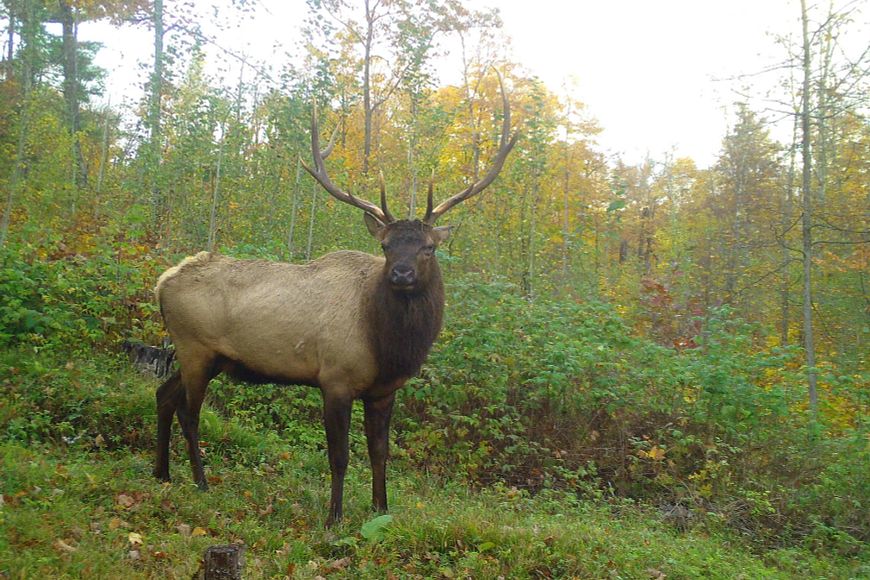Below is a news release from the Wisconsin Department of Natural Resources. The Rocky Mountain Elk Foundation has a long conservation history in Wisconsin dating back to 1990. Since then, RMEF and its partners completed 628 conservation and hunting heritage outreach projects there with a combined value of more than $12.4 million that conserved or enhanced 10,333 acres of habitat and opened or improved public access to 2,000 acres. RMEF also supplied volunteer and funding support for several successful elk restoration efforts.
The Wisconsin Department of Natural Resources (DNR) presented the elk harvest quotas for the Black River Elk Zone and the Clam Lake Elk Zone to the Wisconsin Natural Resources Board.
The DNR approved an eight-bull harvest quota for the Clam Lake Elk Zone and a four-bull harvest for the inaugural season within the Black River Elk Zone. Per treaty rights, the Ojibwe tribes may declare up to half of the harvest quota within the Ceded Territory, which includes the Clam Lake Elk Zone.
Wisconsin residents must apply for this once-in-a-lifetime hunt by May 31.
Applicants must select the Black River Elk Zone or the Clam Lake Elk Zone when applying. The DNR’s Elk Hunting webpage includes information on each elk range to assist with application decisions.
Wisconsin residents can purchase an elk license application online through the Go Wild license portal or in person at a license sales agent. The application fee is $10 and is limited to one per person. The DNR recommends that all applicants check and update their contact information to ensure contact with successful applicants.
For each application fee, $7 applies directly to elk management, monitoring and research. These funds are also used to create and enhance elk habitat, which benefits elk and other wildlife species.
If selected in the drawing, an elk hunting license costs $49. Winners will be notified by early June. Wisconsin residents can only draw an elk tag once in their lifetime.
All winners must participate in a Wisconsin elk hunter education course before obtaining an elk hunting license. The class covers Wisconsin elk history, hunting regulations, biology, behavior and scouting/hunting techniques.
(Photo credit: Wisconsin Department of Natural Resources)
